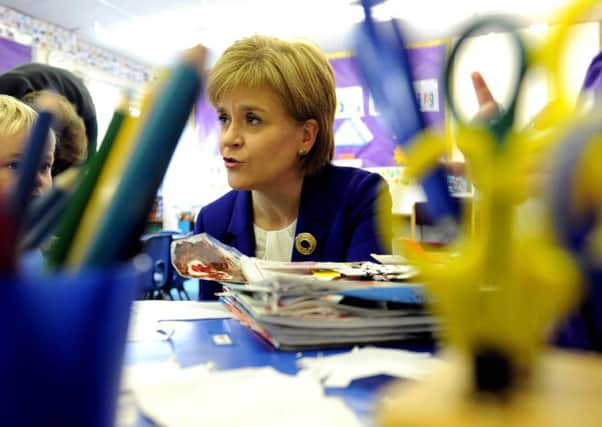Tom Peterkin: OECD education report clear as mud


Written by a “review team” of education experts, the OECD report has been embraced by Nicola Sturgeon as the way to sort out Scotland’s problems in the classroom. It was not, however, embraced quite so fervently by the hacks who attended its launch at Craigmount High School. It was not so much the conclusions drawn by the 176-page document which irritated members of the fourth estate, who thumbed their way through it as they waited for the First Minister to arrive.
Rather it was the tortured and jargon-laden prose that set their teeth on edge. Given that this was a report which identified shortcomings in children’s literacy, there was a certain irony that it was so poorly written.
Advertisement
Hide AdAdvertisement
Hide AdTake, for example, a key point made by the authors when they discussed testing children.
“While there are risks associated with excessive reliance of testing, it is unhelpful to exaggerate the dichotomy between the formative and summative, with the former promoted as essentially desirable and the latter equated with standardised assessment, high-stakes accountabilities, and curriculum distortions,” the report said.
Or what about this call for clarity which provided anything but: “There needs to be clarity about the kinds of collaboration that work best to bring about the innovations and improvements to enhance student learning, and to create coherent and cohesive cultures of system-wide collaboration. This is not an argument for mandated collaboration or contrived collegiality to implement centrally-defined strategies. But it is to argue for greater consistency in collaborative professionalism and moving towards the higher quality collaborative practices that have the most positive effects on student learning.”
How disappointing that a report of this importance should be littered with gobbledegook.
One political journalist – not normally known for his literary pretensions – was heard to remark that a “tabloid hack” would have been able to distil the document into ten crisp pages.
It is a wonder that the report’s key messages were not lost in this sea of drivel. Amid the meaningless waffle were some important recommendations that will have a bearing on the way Scottish children are educated in years to come.
The report called for a relaunch of the Curriculum for Excellence to reflect Sturgeon’s aim to close the attainment gap that sees children from poorer backgrounds outperformed by their richer counterparts.
It also highlighted deficiencies in the education system, including some children struggling with mathematics and reading.
Advertisement
Hide AdAdvertisement
Hide AdBut while identifying the lessons that need to be heeded by the education system, perhaps the authors could learn some of their own.
At a time when too many professions and individuals resort to empty jargon, is it too much to ask for education professionals to lead the way when it comes to expressing themselves in plain English?
There would be much to be gained from ignoring the “complex multi-dimensionality” of OECD report-speak. Otherwise we “risk confounding the aspirational ideal” of making ourselves understood.